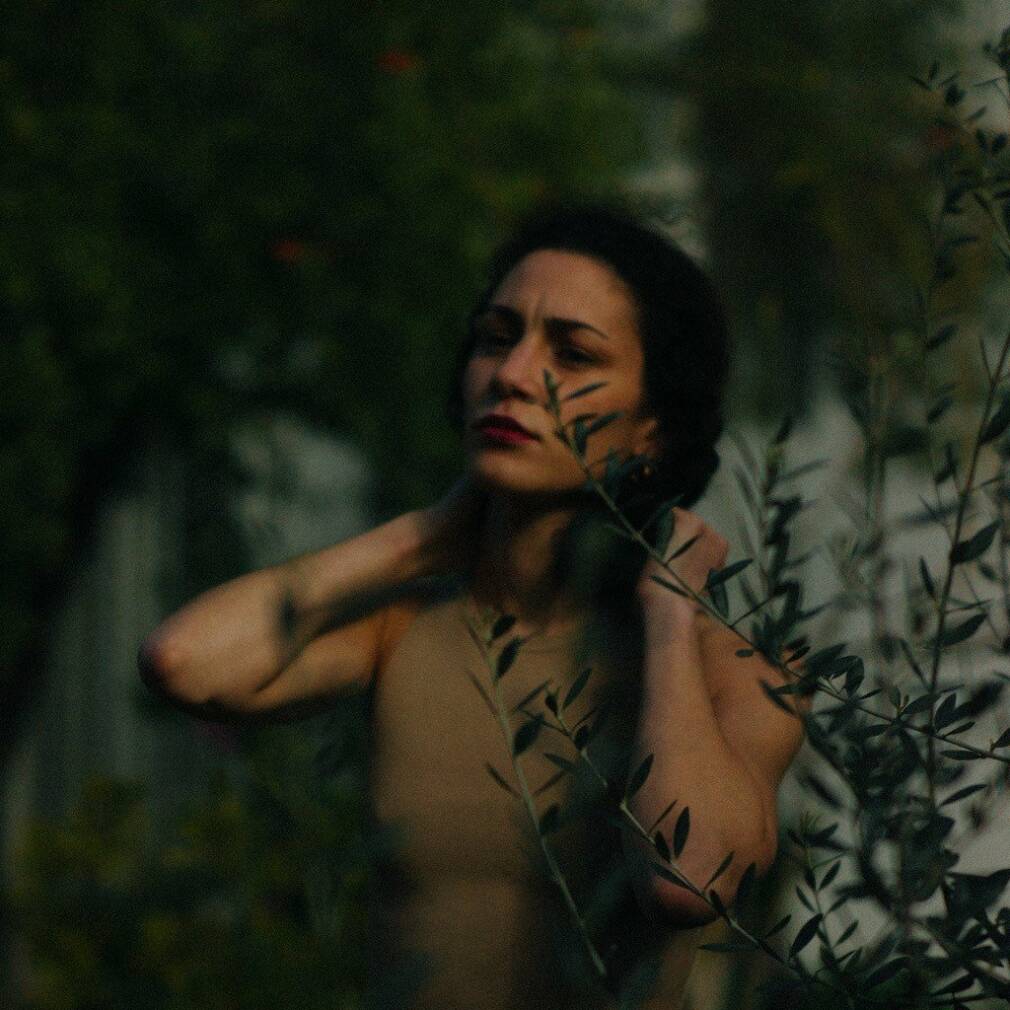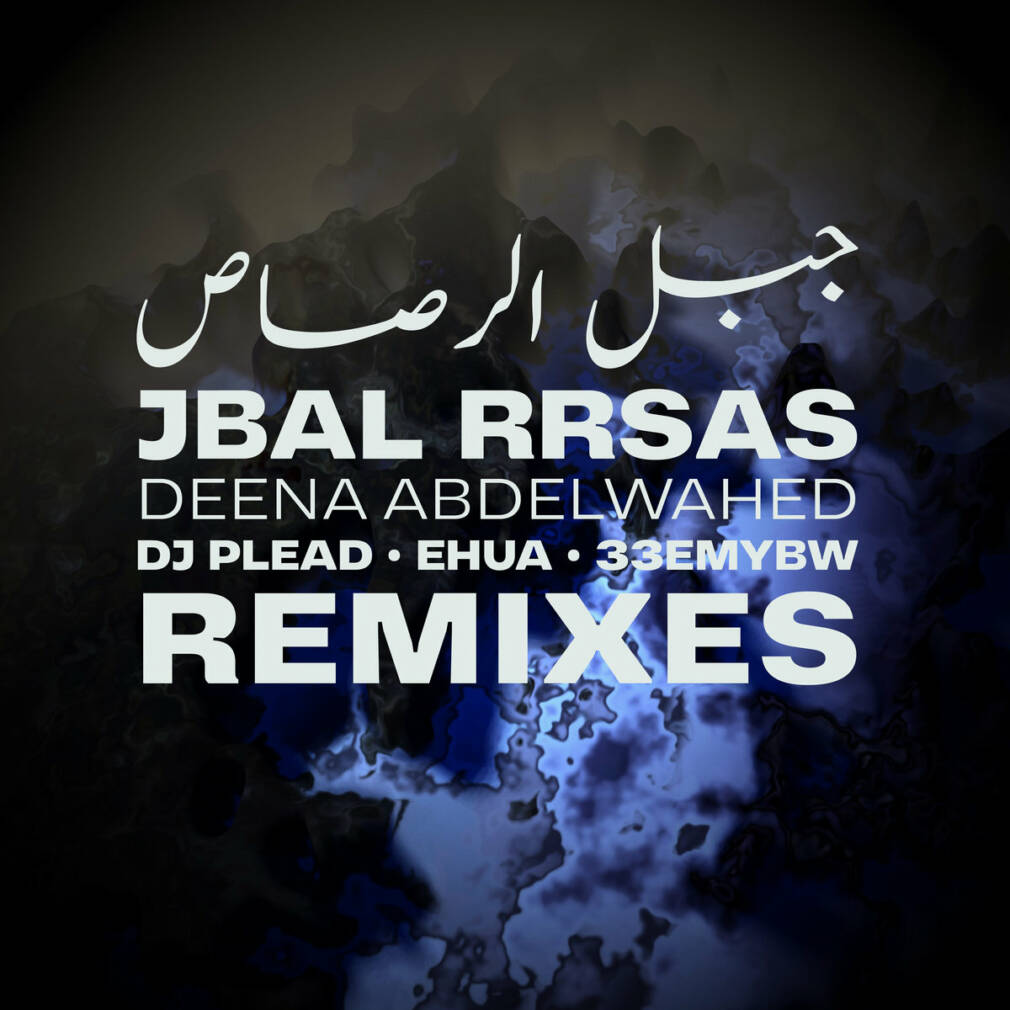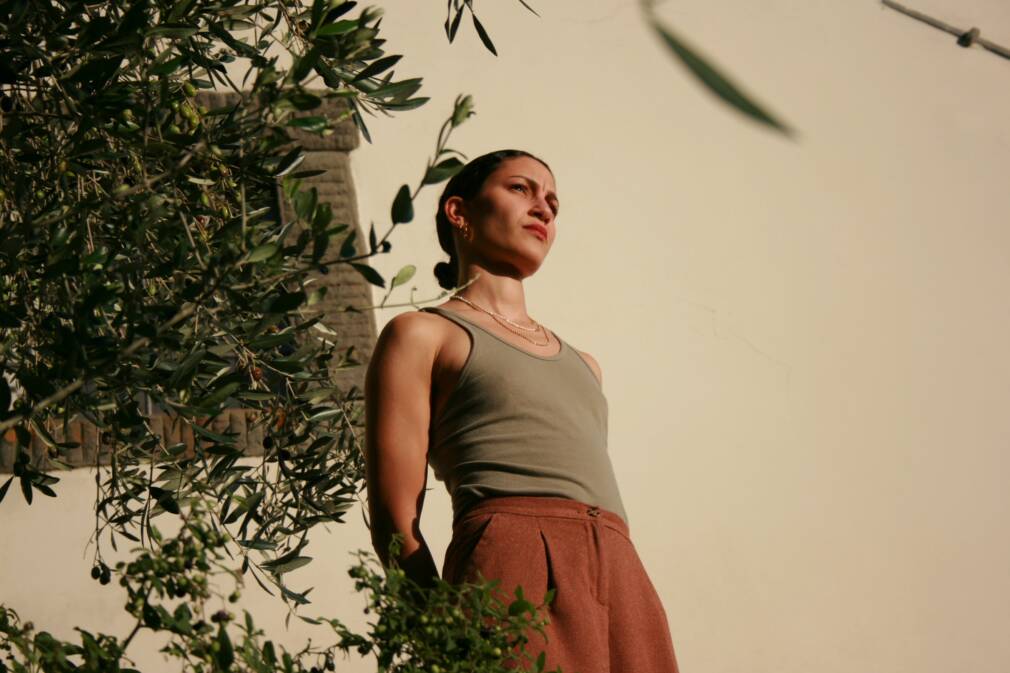A busy week for producer Deena Abdelwahed: this Thursday, February 15, she presents the live version of Jbal Rrsas, her second album released last year via the French electronic label InFiné Music. The day after this event, the musician will release an E.P. of three remixes taken from her project by DJ Plead, 33EMYBW and Ehua; proof if proof were needed of a mindset without blinders or borders, which has guided her musical creation for over a decade now. ” I love the work of these three artists, whose tracks I often play during my DJ sets,” explains the Tunisian. “In fact, Ehua will be opening for me this Thursday.”
A composer of electronic noise, Deena has emerged from the very dark Tunisian collectives World Full Of Bass and Arabstazy, and is now looking for the light. “Art is an extension, a sublimation of an idea that we can’t express in any other way. And that’s why so much of today’s music is negative, dark and melancholy. The world is. Only certain artists – very few, in fact – manage to draw some very beautiful and luminous things out of the times. To be able to express resilience from all the current shit. That impresses me a lot. “
Deena Abdelwahed is a singer of musical territories “in motion“, citing Palestinian oudist Kamilya Jubran, Algerian rapper TIF and Angolan-born producer Nazar. She welcomed us into her small Parisian studio. On the menu? Her recent residency in Atlanta, her love of abstraction, and the expression of struggles on both sides of the Mediterranean.
You give the impression of a musician who goes it alone, but you’re rarely alone when performing your music. Were you accompanied on the production of your latest album, Jbal Rrsas?
I compose alone, but in the studio or on stage, I surround myself with people. Khalil Epi has been working with me on arrangements since the release of E.P. Flagranti (out in 2023 on InFiné and Shouka, AN). Khalil is a hell of an arranger who knows exactly where to position himself on my tracks. He also accompanies me on stage when I play Jbal Rrsas. And you know, I’m on my own when it comes to creating, but I listen to my demos a lot with the musicians around me. Especially as they don’t necessarily have the same musical background as me, so it’s great! Sometimes they’re the ones who stop me in my tracks. Without them, I might naturally go too far in the experimental direction! I write to reach out to very different samples of people. I don’t want to reach a mass audience, I don’t want to be anyone’s standard-bearer. I want my music to touch a few people, but I want them to be very varied! I can see it in the reports I get from my label about buying tracks, from Sweden to Kazakhstan, and I love the idea. As a Tunisian living in Qatar at the time, I was touched by Afro-American music, and I love this dynamic of musical territories on the move, I think it’s healthy.
We imagine you’re quite demanding in your musical tastes.
Let’s just say you’re unlikely to find me listening to derbouka loops on a gabber track, that’s for sure (laughs)! But you know, I’ve been learning music patiently. So my experience of learning music is first and foremost an experience of slowness, of waiting. Because I started with deejaying. So I spent a very long time listening, and very attentively, to all kinds of music. I studied a wide range of musical styles, without blinkers or preconceived ideas, because I didn’t come from an academic background. When I started out in Tunisia, I was obviously very close to the noise and experimental scenes of the time, but since then I’ve explored all genres. In the end, it’s only rap that I don’t really listen to anymore.
You’ve just come back from a residency in Atlanta, didn’t you throw yourself into Trap?
Honestly, not at all. Jazz, soul, nu-soul, conscious rap or trap, I’ve got quite a catalog stored away in my head, if it dates from before 2010. In fact, since I’ve been making music, I can’t really listen to rap anymore… Isn’t that strange? It happened the moment I started making music. From the moment I started using machines myself, it was as if I’d uncovered something that wasn’t working for me in the rap music of that period. I think it had to do with the disconnect between the instrumental parts and the vocals. I find that it’s too often incoherent, as if the presence of one hinders the existence of the other. Music shouldn’t be cosmetic. I don’t like things to be laid down haphazardly simply to support a style or highlight a voice. Then, recently, the Algerian rapper TIF gave me a huge slap in the face. His flow fuses with the productions, it’s crazy.
What do you draw from your experience in Atlanta, a highly symbolic city and cradle of the American civil rights movement?
The quality of living together in Atlanta, man! I was jealous, really. Atlanta is a human, healthy, hyper-functional city. Atlanta is a black city, where the African-American community manages to value and enrich its members from within. Of course, there are plenty of people in trouble too, but that has more to do with the American federal system. It’s fascinating to see how this former slave bastion has managed to reconcile with itself, giving birth to the American civil rights movement. The locals have been speaking their own militant language right from the start. There’s an astonishing mastery of both archives and personal stories, written and oral. There’s a strong connection between the people, their land and their ancestors. In Atlanta, everyone knows which street their enslaved ancestors lived on, for example. Transmission, even if it’s linked to traumas, happens naturally, almost organically, and on a neighborhood scale. As a result, there’s a very peaceful side to Atlanta, I think, linked to the fact that people aren’t at war with their social environment. In Arab countries, and in Europe too for that matter, when things aren’t going well, people leave. It’s very easy to break away from your own territory. Europeans and Arabs alike, when things aren’t going well, we cut ourselves off from our parents or grandparents. It breaks up territories.

There’s a militant dimension to your music. Is it difficult to express your commitments in the 2.0 age of entertainment?
It’s become extremely complex to formulate and stage a message, let’s say political or social. Because social networks have hyped a form of branding based on commitment and militancy, and I don’t want to feed into this crappy algorithm. The idea is to be able to impact people, without taking part in the big social show. But it’s a tricky business and I spend a lot of time thinking about it, probably too much, in fact. I think poetry is still one of the best ways of expressing yourself, of getting your message across in the purest possible way, without being attacked personally. Criticism of power has been formulated in this way for centuries. In Kalîla wa Dimna*, a collection of tales of Indian origin, the author was already making moral remarks or reproaches to the king in the 8th century, through the allegory of a fox and a crow.
More poetry, fewer Instagram posts.
But listen, if, for example, I became passionate about Angolan musician Nazar’s quest for identity and his demands, it’s first and foremost because I was touched by his music. I became interested in Angola’s civil war through an artist’s poetry, not through his Instagram posts. Posting Free Palestine on the networks is just an invitation to take part in a brouhaha. It’s not an invitation to learn or to get involved. It gives no tools for knowledge or struggle. It’s just noise. This noise can even have downright harmful effects. More than ten years ago, when the Femen women demonstrated topless in front of the Tunis courthouse in support of Amina, the effect was catastrophic. Misunderstanding here, misinterpretation in Europe… The result? The small gains made in Tunisia have been slapped in the face. Because we don’t fight the same way in Europe as we do in the East, we have to accept that. The same goes for the forms of struggle initiated by the Queer or LGBTQI+ movements in the United States: they’re not ready-made kits that can be imported and applied without a second thought to any society in the world. There is a difference in the way struggles are narrated between the East and the West, and this has to be taken into account, otherwise the result is dramatically counter-productive.
It’s a question of identity and positioning.
That’s the point. My musical positioning in relation to my Arab identity is precisely that there is none. In my musical practice, I don’t have to position myself in relation to my identity. I’m not for it, I’m not against it, I don’t feel forced to ignore it or erase it, as some people do. On the other hand, I’m not biased, I don’t compose with the Arab electronic music manifesto under my elbow. Every time I release an album, I’m almost asked to justify the provenance and origin of a particular sample or loop. Explaining the use and origin of a rhythm, Tunisian for example, I do in the studio with such and such a collaborator or producer, because he or she needs to understand the origin and symbolism of a sound in order to be able to arrange it or use it. That’s fine. But why should I do it in the press? I hope to be beyond that by now. I really hope that in a few years’ time, I won’t have to justify the sound components I use in my music. The very essence of my music is pure technique applied to forms of poetry, expressionism and the imaginary. I serve my own abstractions. I’m not in the service of electro-arab music, or whatever. I deconstruct the material and then reposition it in my own way, according to my impulses, my imagination and my ideas. Kamilya Jubran is an oudist, right? But Kamilya Jubran’s aim is not at all to perpetuate the oud tradition. This musician’s aim is to create, in a completely free and instinctive way, music that can serve the movements of her singing and her words. It’s the same for me.
* This collection of animal fables, originally from India, was adapted into Arabic prose in the 8th century and then translated into Latin. Some of its fables inspired La Fontaine.
Jbal Rrsas Remixes, out February 16th via InFiné





